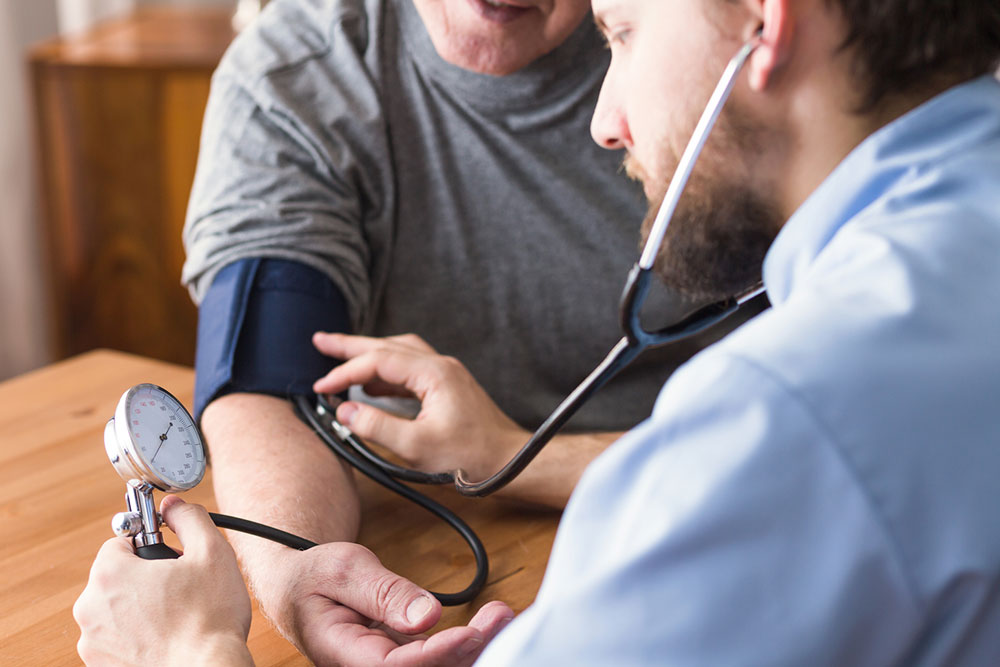Causes, Symptoms and Treatment of Primary Pulmonary Hypertension
PAH or pulmonary arterial hypertension is also known as primary pulmonary hypertension. It is a very rare hypertension disease that affects your capillaries and arteries. The blood from the right ventricles of your heart flows into your lungs through these vessels. When the pressure in your arteries arises, your heart has to work much harder to pump the blood and as a result, it weakens the heart muscles. This can result in death as well. You cannot be cured of primary pulmonary hypertension. However, there are treatment options available for you to cope with it.
Symptoms
During the early stages of the primary pulmonary hypertension, you will not get any such noticeable symptoms.

- Dizziness
- Chest pressure
- Fainting
- Fatigue
- Difficulty breathing
- Heart palpitations
- Rapid pulse
- Chest pain
- Bluish spots on your skin and lip
- Swelling of legs and ankles
- Swelling of your abdomen towards the later part of your disease
You will find it difficult to breathe when you exercise or perform any other type of physical activity. Also, you might find it difficult to breathe even at the time when you are taking rest.
Causes
PAH happens when the capillaries and the arteries which carry the blood from the heart to the lungs gets destroyed or constricted.
- Disorders with certain connective tissue
- Some infections, such as schistosomiasis or HIV infection
- Chronic liver disease
- Congenital heart disease
- Certain drugs such as recreational drugs
- Fat burners
- Certain toxins in your body
These are not the only causes for PAH to develop. As already stated, there is no specific cause for PAH, or even if it’s there, it is still unknown to the doctors and scientists. When PAH develops without any related reasons, it is called idiopathic PAH.
Diagnosis
When your doctor thinks that you have primary pulmonary hypertension, he or she will ask you to do certain tests to assess the condition of your arteries and heart. These tests for PAH diagnosis will include:
- Chest X-ray: To know whether the pulmonary arteries have got enlarged or not.
- MRI or CT scan: To search for blood clots in your pulmonary arteries.
- Electrocardiogram: To identify any sign of abnormal rhythm or strain in your heart.
- Echocardiogram: To check the structure of your heart and how it is functioning and also measure the pressure of your pulmonary artery.
You doctors will make you go through these tests just to find out the signs of PAH and also other causes for the symptoms you are having. Doctors generally look to rule out any other probable causes before determining that you are suffering from PAH.
Treatment
At present, there is no permanent cure for primary pulmonary hypertension. However, there are certain treatment options which will decrease the risk of complications and get you a prolonged life.
- Medications: PAH is sometimes related to other medical conditions that you may have. In such a case, your doctor will prescribe you certain medications. Also, if you are currently taking any medication, then the doctor will try to adjust these PAH medications along with them.
- Surgery: Surgical treatment is another option for PAH treatment. But, this treatment option will depend on the severity of the condition you have. Arterial Septostomy could be done in order to reduce the pressure on the right side of the heart. Also, the replacement of the heart or lungs could be an option too.
- Changes in lifestyle: Another important aspect of PAH treatment is the lifestyle change without which no treatment option will be effective. The patients of PAH need to start living a more healthy lifestyle. This will include developing healthy food habits, exercising daily, maintaining the right weight according to the height, and finally quit the habit of tobacco smoking once and for all.
PAH is one such disease that worsens with time. Therefore, early detection and treatment will increase the life expectancy of the patient. That is why a medical consultation with your doctor is extremely important if you have any of the aforementioned conditions.

